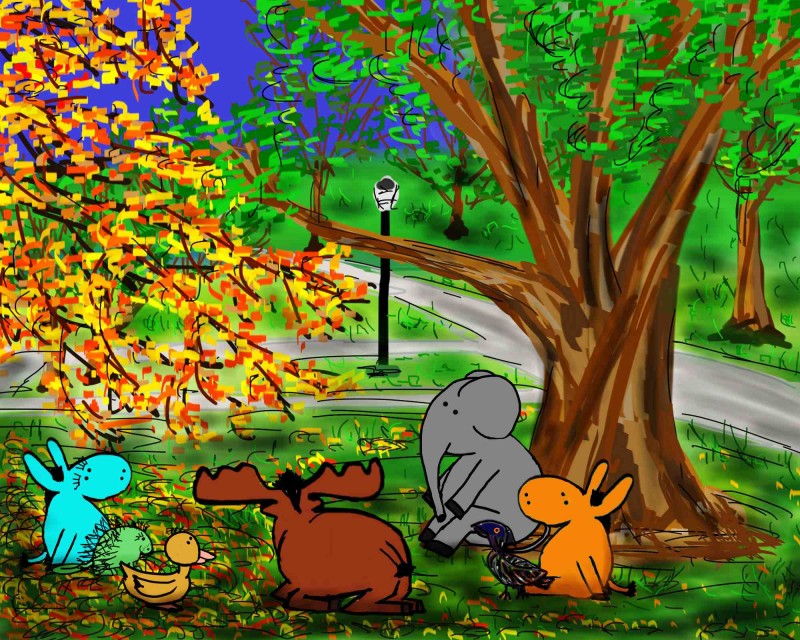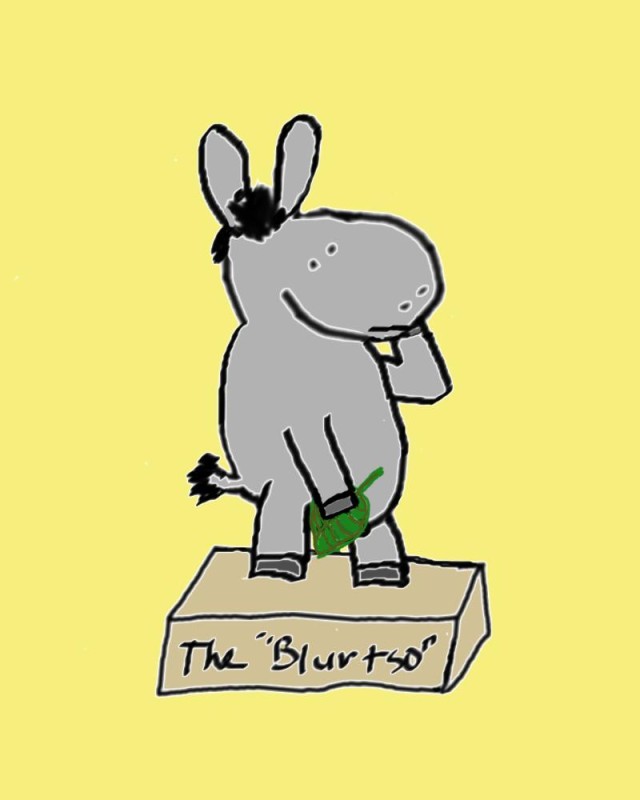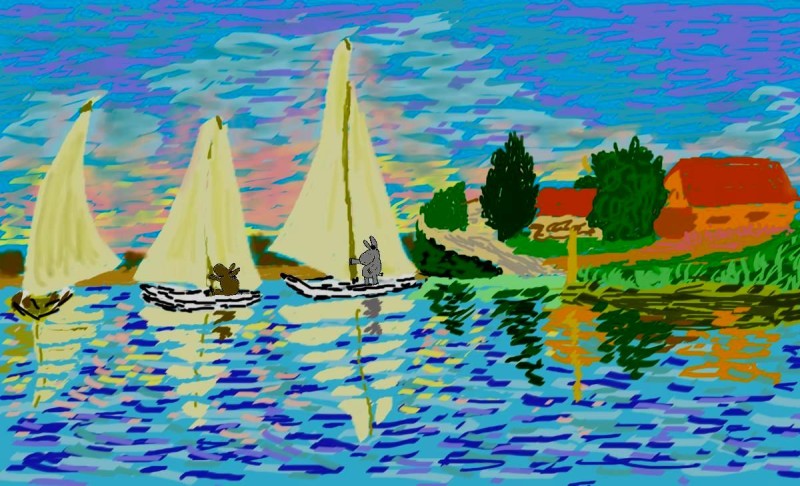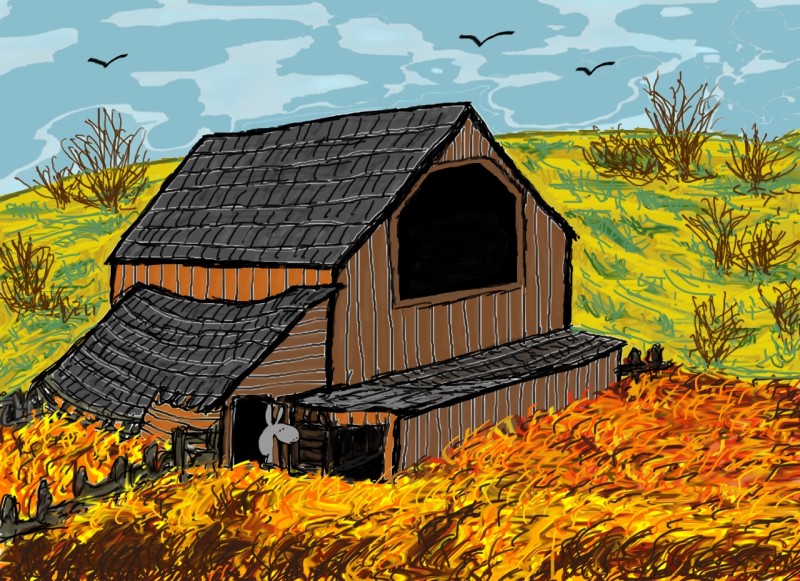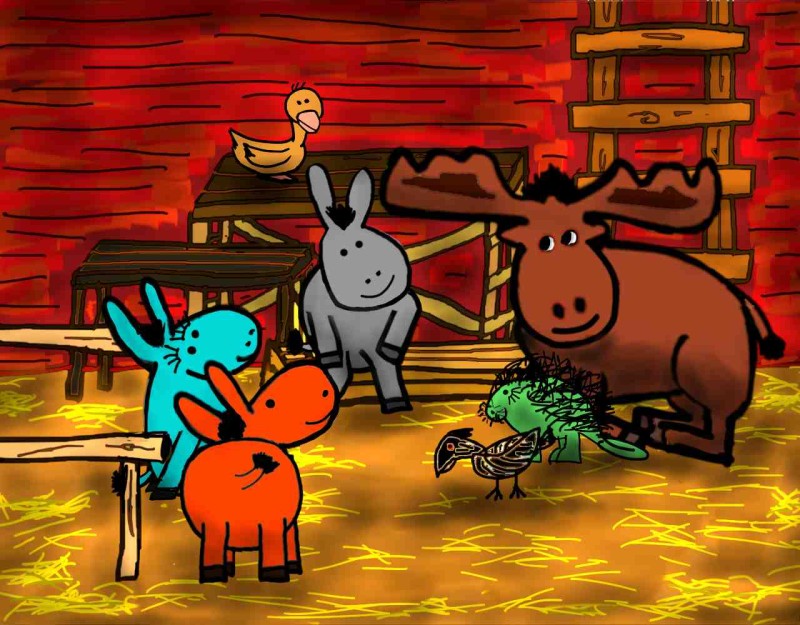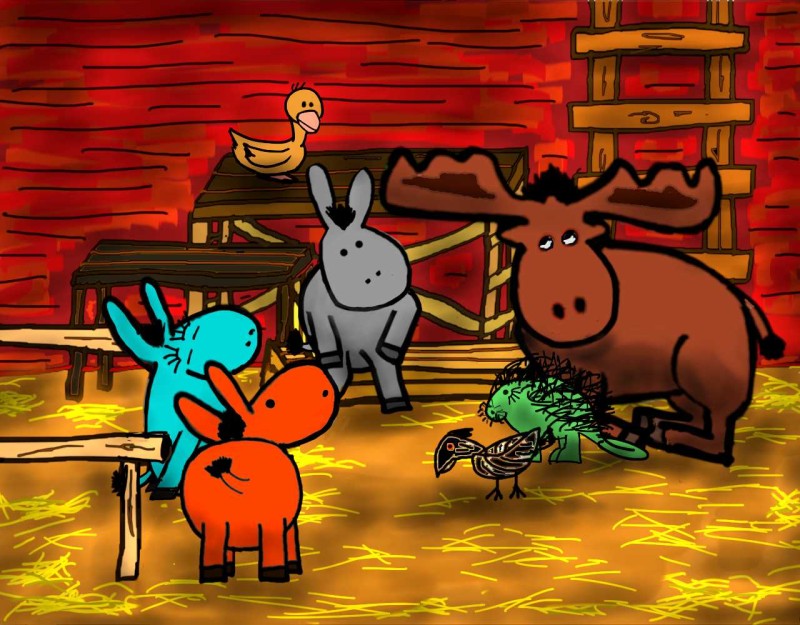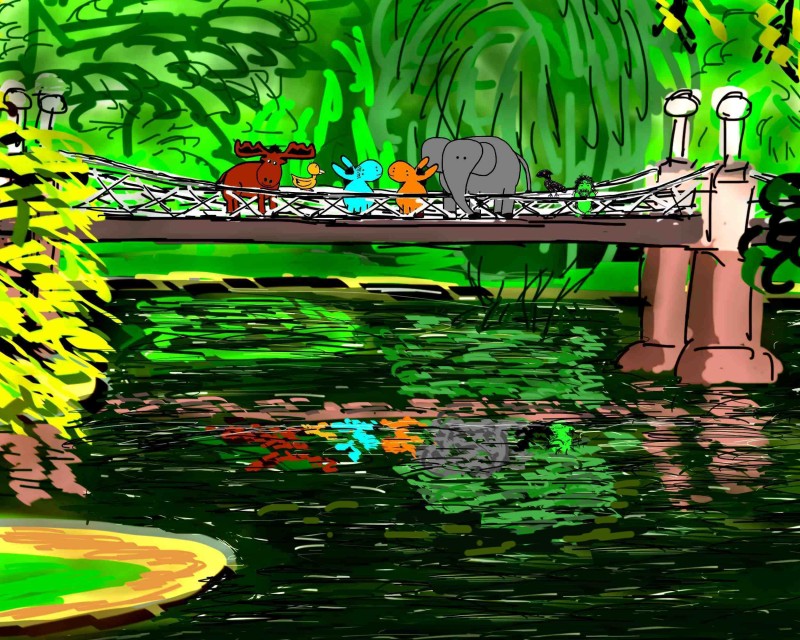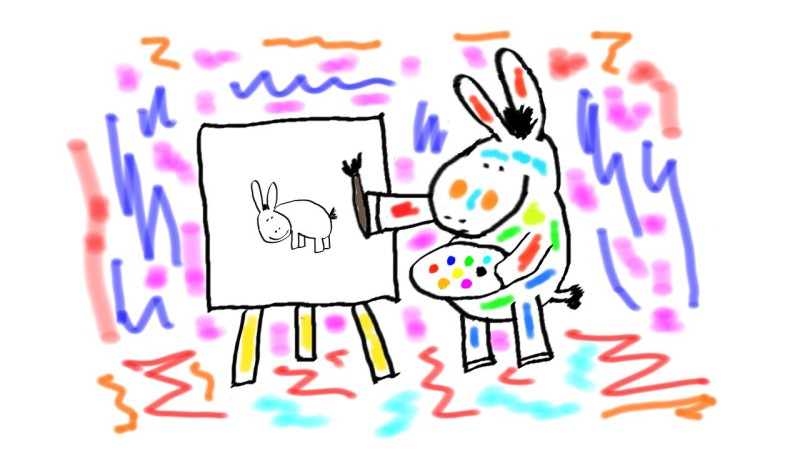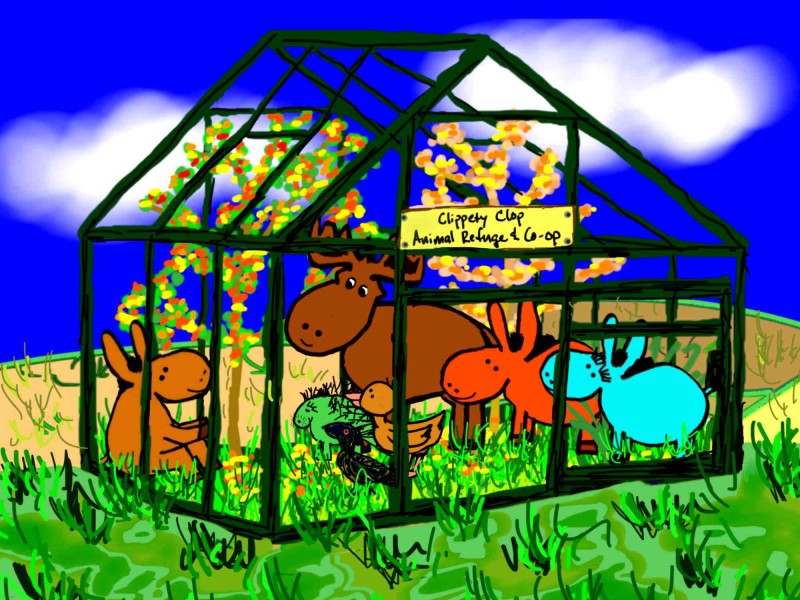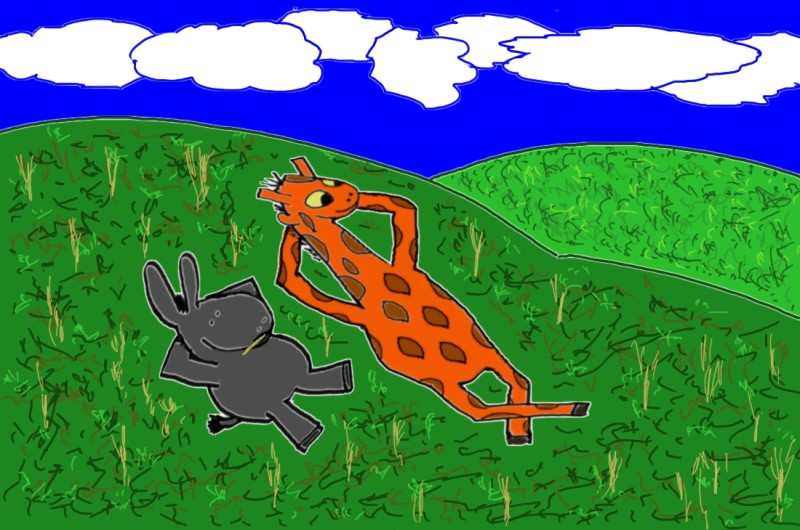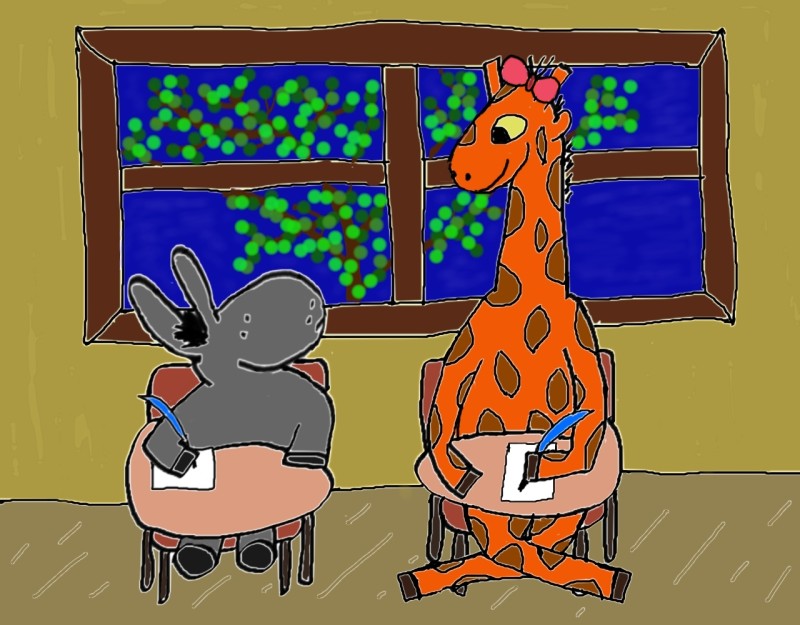Today’s question, said Harlan, is: “Where did it go?”
Where did what go? said Chelsea.
It was here just a minute ago, said Morton.
I didn’t take it, said Emma Lou.
Neither did I, said Frank.
Do you mean “ubi sunt”? said Glouster.
Ubi sunt? said Morton.
“Ubi sunt,” said Glouster, is Latin for “Where are they?” It comes from a Latin poem that begins, “Ubi sunt qui ante nos in mundo fuere?” which translates: “Where are they who, before us, existed in the world?” It was a common theme in medieval poetry, and was most famously expressed by the French poet, François Villon who asked, “Où sont les neiges d’antan?” or “Where are the snows of yesteryear?”
The snows of yesteryear? said Morton.
I don’t like snow, said Chelsea.
Neither do I, said Frank.
I don’t mind it, said Emma Lou, so long as I’m not far from my den.
Why would anyone worry about last year’s snow? said Morton.
It’s a metaphor, said Glouster, for all the things you’ve lost in your life.
Lost? said Chelsea.
Yes, said Glouster, the things you had in the past that you no longer have.
The things I’ve eaten? said Morton.
Yes, said Glouster, and the friends you’ve lost, and your lost youth.
My lost youth? said Chelsea.
Yes, said Glouster.
I’m not going to lose my youth, said Chelsea.
Of course you are, said Glouster.
Really? said Chelsea.
Yes, said Glouster.
In that case, said Chelsea, I don’t like “ubi sunt.”
Crows live forever, said Frank.
They do? said Morton.
Sure, said Frank, crows, or “ravens”, and nightingales, and even some other birds.
Are you sure? said Morton.
Yes, said Frank, just ask Edgar Allen Poe and John Keats.
Who are they? said Chelsea.
They are poets, said Frank, who wrote about birds who live forever, birds who travel from heaven to earth to hell and then back again.
Have you been to heaven and hell? said Chelsea.
No, said Frank, not yet.
I don’t want to go to hell, said Morton.
Heaven and hell, said Glouster, are metaphors for, “the realm of the dead.”
I don’t want to go there either, said Morton.
Maybe, said Chelsea, that’s where the “ubi sunts” are.
I know a song, said Frank, about “ubi sunt.”
What’s it called? said Chelsea.
It’s called “The Ashgrove,” said Frank, and it has a blackbird in it.
How does it go? said Chelsea.
I don’t remember all the words, said Frank, but it’s about a woman who loses her lover and looks for him in an ashgrove.
Does she find him? said Chelsea.
No, said Frank, he’s buried beneath the green turf.
Is that a metaphor for “the realm of the dead”? said Morton.
Yes, said Frank.
Why doesn’t the blackbird, said Chelsea, fly to the realm of the dead, talk to the dead lover, then return and talk to the woman so she can have a sense of closure?
That’s a good question, said Frank.
What’s closure? said Morton.
Closure, said Chelsea, is talking with your ex-lover until you have nothing more to say.
Why would you want to do that? said Morton.
Because, said Chelsea, if you say everything you have to say, you can stop thinking about him when he’s gone.
So he doesn’t become an “ubi sunt”? said Morton.
Yes, said Chelsea.
I would like to be an “ubi sunt”, said Emma Lou.
So would I, said Glouster.
Why? said Chelsea.
Because, said Glouster, I don’t want to be forgotten.
Being forgotten, said Emma Lou, would be like a second death.
Maybe it’s a good thing, said Morton, for people to go around asking “ubi sunt?”
Why? said Chelsea.
Because, said Morton, it keeps the dead from dying.
Category: Boston and Cambridge and Concord
“Blurtso meets Michelangelo”
“Blurtso and Pablo go sailing at Argentuil”
“Blurtso finds a barn”
“Weohryant University” (XVIII) – What 101
“Weohryant University” (XVII) – Where 101
Today’s question, said Harlan, is: “Where’s the door?”
The door? said Morton.
What door? said Frank.
There are lots of doors, said Chelsea.
You can’t swing a cat, said Frank, without hitting a door.
Maybe it’s a symbolic door, said Glouster.
An entrance door or an exit door? said Emma Lou.
Why do we want to find it? said Chelsea.
So we can get out, said Morton.
What if there’s no exit? said Frank.
Then we’ll have to stay here, said Morton, until we find it.
Or find an entrance, said Emma Lou.
An entrance? said Morton.
Yes, said Emma Lou, if we can’t get out, maybe we can get in.
Why do we want to go anywhere? said Morton.
That’s a good question, said Glouster.
To see what’s on the other side, said Chelsea.
The other side? said Morton.
Yes, said Chelsea, whenever I see a door, I wonder what’s on the other side.
Even when it says “do not enter”? said Morton.
Yes, said Chelsea, especially then.
Curiosity killed the cat, said Frank.
It did? said Morton.
If that’s true, said Chelsea, why arent’ there dead cats everywhere?
It’s an idiom, said Glouster.
An idiom? said Morton.
An idiom, said Glouster, is “a set expression of two or more words that means something other than the literal meaning of the individual words.”
Idioms, said Emma Lou, often have a basis in reality.
That’s true, said Frank, like the idiom, “There’s more than one way to skin a cat.”
Why would anyone want to skin a cat? said Morton.
It means, said Glouster, “There’s more than one way to do something.”
Or, “Who let the cat out of the bag,” said Frank.
Why would anyone put a cat in a bag? said Chelsea.
Lots of reasons, said Frank.
Like what? said Chelsea.
To stop cats, said Frank, from chasing birds.
Oh, said Chelsea.
I suppose birds aren’t fond of cats, said Morton.
No, said Frank.
What animals do donkeys dislike? said Emma Lou.
We like all animals, said Chelsea.
Except dogs, said Morton, when they’re nipping and yapping at your heels.
That’s true, said Chelsea, but some dogs are nice.
I don’t like crocodiles and alligators, said Glouster, they remind me of U-boats.
What’s a U-boat? said Chelsea.
A U-boat, said Glouster, is a submarine. The name comes from the anglicized version of the German word, “U-boot,” which comes from the word “Unterseeboot,” which means “under sea boat.” In World War II German U-boats plundered U.S. and Canadian merchant ships carrying supplies to allies in Western Europe.
I hate war, said Chelsea.
How does a submarine go under the sea, said Morton, without water leaking through the doors.
The doors, said Glouster, are air-tight. Nothing can get in or out.
There’s no exit? said Frank.
Not as long as the U-boat is underwater, said Glouster.
I don’t like to be trapped in closed spaces, said Frank.
Nor do I, said Glouster.
I don’t mind, said Emma Lou, as long as I can dig my way out.
“When one door closes,” said Glouster, “another one opens.”
Is that true? said Morton.
It’s an idiom, said Glouster, that means “When one opportunity is lost, another one presents itself.”
I’ve been in a barn, said Morton, that had two doors which were both closed.
What did you do? said Frank.
I stopped thinking about getting out, said Morton, and started thinking about something else.
You opened a door in your mind, said Emma Lou.
That’s right, said Morton.
Maybe that’s the door we should be looking for, said Frank.
The door in our mind? said Morton.
Yes, said Emma Lou, the door to imagination, to new perspectives, possibilities, and opinions.
I use that door all the time, said Chelsea.
It’s a very nice door, said Morton.
And it’s almost always open, said Emma Lou.
Almost? said Chelsea.
Yes, said Emma Lou, sometimes it’s closed by habits and prejudices we’ve adopted from those around us.
A Scottish journalist named Charles Mackay, said Glouster, wrote a book called, Extraordinary Popular Delusions and the Madness of Crowds.
What’s it about? said Chelsea.
It’s a book about crowd psychology, said Glouster, and how individual delusion can become mass delusion.
Mass delusion, said Emma Lou, is called “reality.”
How can you tell, said Morton, if what you believe is a delusion?
That’s a good question, said Chelsea.
What’s the answer? said Frank.
I don’t know, said Morton, maybe that’s the door we should be looking for.
“Blurtso tries his hoof at painting”
“Weohryant University” (XVI) – When 101
Today’s question, said Pablo, is: “When is it too late?”
Too late for what? said Morton.
I didn’t do it, said Emma Lou.
Too late for planting? said Frank.
“Lateness,” said Glouster, is “arriving or remaining after the due, usual, or proper time.”
The proper time? said Chelsea. Who decides what is the proper time?
Your boss does, said Frank.
Or your teacher, said Glouster.
Or whoever makes the rules, said Morton.
Whoever has the power, said Emma Lou.
Michel Foucault, said Glouster, said: “The strategic adversary is fascism… the fascism in us all, in our heads and in our everyday behavior, the fascism that causes us to love power, to desire the very thing that dominates us.
Am I a fascist? said Chelsea.
I don’t think you’re a fascist, said Morton.
What’s a fascist? said Frank.
“Fascism,” said Glouster, is “a political philosophy, movement, or regime that exalts nation and often race above the individual and stands for a central autocratic government headed by a dictatorial leader, severe economic and social regimentation, and forcible suppression of opposition.”
That doesn’t sound like me, said Chelsea.
It can also mean, said Glouster, “a tendency toward or actual exercise of strong autocratic or dictatorial control.”
Dictatorial control? said Morton.
A dictator, said Glouster, is “someone granted absolute power, often ruling oppressively.”
Do I have absolute power? said Chelsea.
Foucault goes on to say, said Glouster, “It is my hypothesis that the individual is not a pre-given entity which is seized upon by the exercise of power. The individual, with his identity and characteristics, is the product of a relation of power exercised over bodies, multiplicities, movements, desires, forces.”
Seized on by the exercise of power? said Frank.
Does that mean, said Chelsea, that I’m a victim.
Both a victim, said Emma Lou, and a dictator.
Foucault adds, said Glouster, that “there is no power relation without the correlative constitution of a field of knowledge, nor any knowledge that does not presuppose and constitute at the same time power relations.”
Isn’t that a vicious circle? said Chelsea.
Yes, said Glouster.
How did we get caught, said Frank, in this vicious circle?
We were talking, said Emma Lou, about who decides what is too late and what is not too late.
Sometimes, said Frank, nature decides what is too late.
Yes, said Morton, like when it’s too late to plant pumpkins in order to have a good harvest in the fall.
Does that mean, said Chelsea, that nature is a fascist?
A fascist, said Emma Lou, that desires to be exploited by itself.
But I am a part of nature, said Morton. Does that mean I’m constantly exploiting myself?
Yes, said Emma Lou.
So if I grow a pumpkin, said Morton, then make a pumpkin pie, then eat it, I’m exploiting myself?
Yes, said Emma Lou.
In that case, said Morton, I should try to exploit myself more often.
When is it too late, said Chelsea, to plant pumpkins for a good harvest?
I don’t know, said Morton, I’ve never planted a pumpkin.
You haven’t? said Chelsea.
No, said Morton, I’ve always exploited the pumpkin someone else planted.
That’s shameful, said Chelsea.
Is it? said Morton.
What if, said Emma Lou, the person who planted the pumpkin derived pleasure from Morton’s exploitation of the pumpkin?
You mean, said Frank, the pleasure one gets from sharing with someone else?
Exactly, said Emma Lou.
That’s a good question, said Chelsea.
What would Foucault say? said Frank.
I’m not sure, said Glouster, I suppose he would say that the act of sharing is an act of exploitation, a disguised power-play designed to manipulate the recipient into a position of gratitude and subservience.
I think, said Chelsea, the world would be a better place if more of us went around exploiting each other by sharing.
“Blurtso misses the revolution”
“Blurtso can’t eat the same pumpkin pie twice”
Heraclitus, said the professor, was a Greek who wrote, “You can’t step into the same river twice…” Why would anyone step into a river? said Blurtso, that’s what bridges are for. You can’t step into the same river, continued the professor, because the river is always changing, and when you step in a second time, it’s a different river, and you are changing too, and are not the same as when you first stepped in. In fact, repetition is a myth, it’s impossible… I’m sorry, said Blurtso, I’m afraid I wasn’t listening, could you repeat that?
